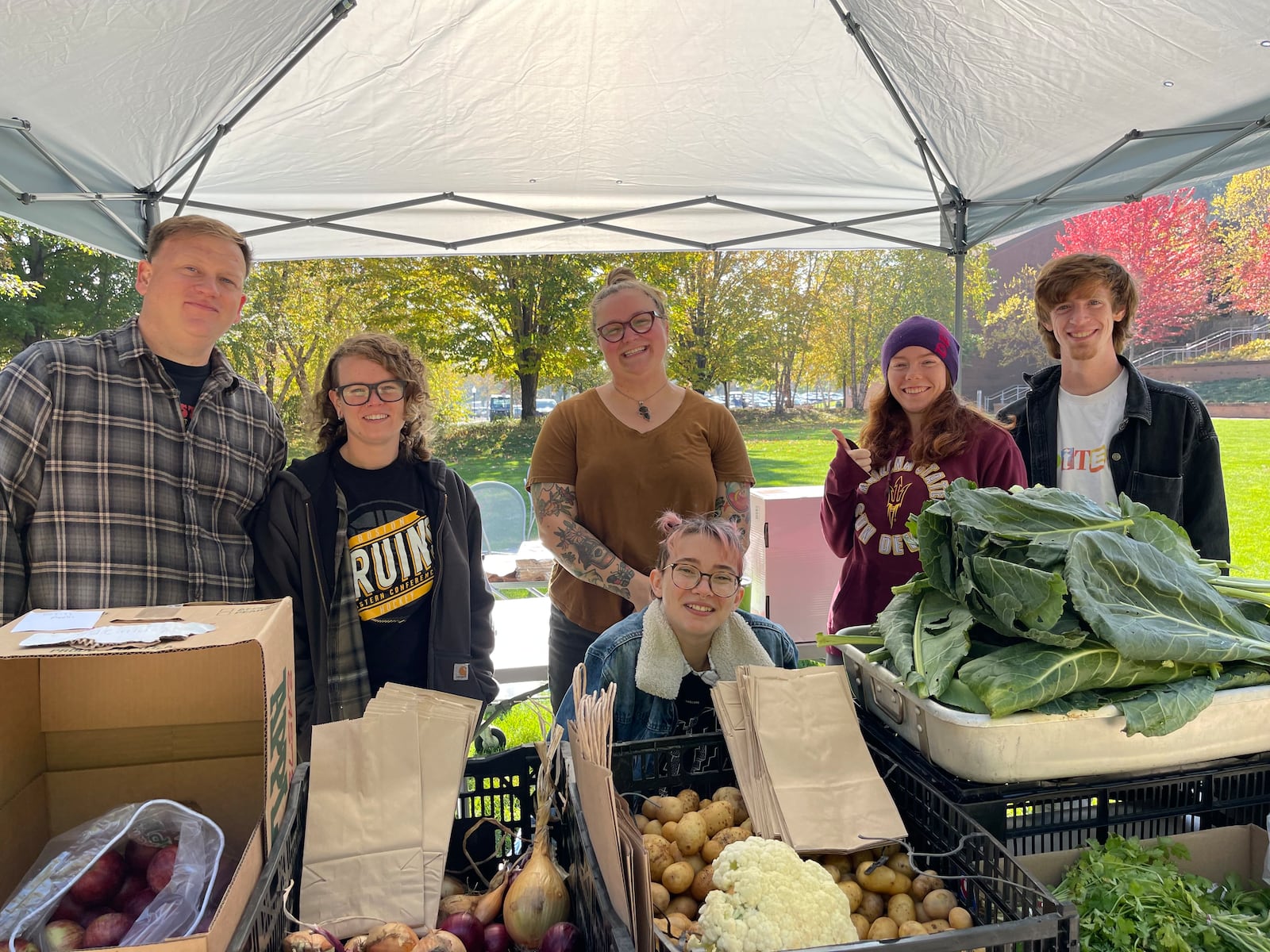Concerns are mounting as potential cuts to the Supplemental Nutrition Assistance Program (SNAP) threaten to disrupt food access for thousands of college students in Massachusetts. The federal program, which provides essential grocery assistance to low-income households, faces a funding shortfall set to take effect on November 1, 2023, if a government shutdown is not resolved.
At Greenfield Community College, student Michael Hannigan has been actively preparing for a free food market aimed at supporting fellow students. Recently, he spent his free time harvesting surplus produce from local farms, including potatoes and baby kale. The market has become increasingly vital, as many students depend on SNAP benefits to meet their nutritional needs. Hannigan, who left his job to focus on his education at the age of 42, expressed the challenges he faces without SNAP support, stating, “My main income is work study, which is minimum wage. Without SNAP benefits, it’s kind of tricky to make the money stretch.”
Across Massachusetts, over 158,000 college students are eligible for SNAP; however, only about 73,000 are enrolled, largely due to a lack of awareness regarding their eligibility. The state’s Department of Transitional Assistance reports that as of September, there are 1,061,460 individuals receiving SNAP benefits in Massachusetts.
In light of these impending cuts, many colleges are bracing for increased demands on food assistance programs. Although numerous institutions have developed initiatives like food pantries to combat food insecurity, they are concerned about their ability to support the influx of students who may be adversely affected by the loss of SNAP benefits.
Implications of SNAP Cuts on Student Welfare
The potential loss of SNAP funding could significantly influence students’ academic persistence, particularly at community colleges. Hannigan highlighted the difficult choices some students may face between attending classes and working additional shifts to feed their families. “A lot of people have kids and families. It could easily come down to: am I going to go to class today or am I going to pick up an extra shift so I can feed my family?” he said.
The long-term impacts are troubling, according to Noe Ortega, Commissioner of the Massachusetts Department of Higher Education. He noted that cuts to SNAP could hinder students from completing their education, stating, “It is another thing that prevents students from persisting and completing.” Associate Professor Adam Saltsman from Worcester State University echoed this sentiment, expressing concern about the increasing number of students facing food insecurity. Recent data indicated that 39% of students at Worcester State reported experiencing some level of food insecurity in the month prior to a survey, with 17% facing very low food security.
Colleges Respond to Food Assistance Needs
In anticipation of potential SNAP cuts, institutions across Massachusetts are evaluating their resources and developing strategies to meet the growing food assistance needs. William Heineman, president of North Shore Community College, reported that the college is currently monitoring food inventories but recognizes the challenges ahead. “At the moment, things look OK. The longer it goes on, obviously, the more challenging that will become,” Heineman said.
Other institutions, such as Westfield State University, are actively seeking donations to bolster their food pantries. Linda Thompson, the college’s president, mentioned the importance of community support during this critical time. Additionally, Framingham State University is encouraging contributions of food and hygiene products while preparing for an increase in emergency grant applications.
As the situation evolves, colleges are emphasizing their resources to students. Fitchburg State University has reminded students of its Falcon Bazaar, which provides free food, hygiene supplies, and essential items. Private institutions like Emmanuel College have launched initiatives such as the “Swipe It Forward” program, allowing students to utilize unused cafeteria swipes.
In response to the growing concerns, Governor Maura Healey announced a $4 million advance to local food banks to help mitigate the impact of SNAP cuts. Healey highlighted the challenges states face in replacing the support SNAP provides, urging reliance on food banks and pantries to fill the gap. “There’s no way that a state, any state in the country, can begin to backfill what SNAP assistance provides,” she stated.
The looming cuts to SNAP are compounded by broader federal reductions impacting food access for colleges. A recent report indicated that cuts exceeding $1 billion to the USDA, which funds food programs, have already diminished resources for college food pantries significantly. For instance, Quinsigamond Community College has reported a loss of over 6,300 meals or 7,000 pounds of food due to these reductions. Vice President Michelle Tufau Afriyie remarked on the direct correlation between food insecurity and students’ academic success, stating, “Food insecurity is not a peripheral issue. It is directly tied to student persistence and completion.”
As the deadline for potential SNAP cuts approaches, college communities in Massachusetts are mobilizing to address the impending crisis. The situation underscores the urgent need for systemic solutions to ensure that students can focus on their education rather than their next meal.







